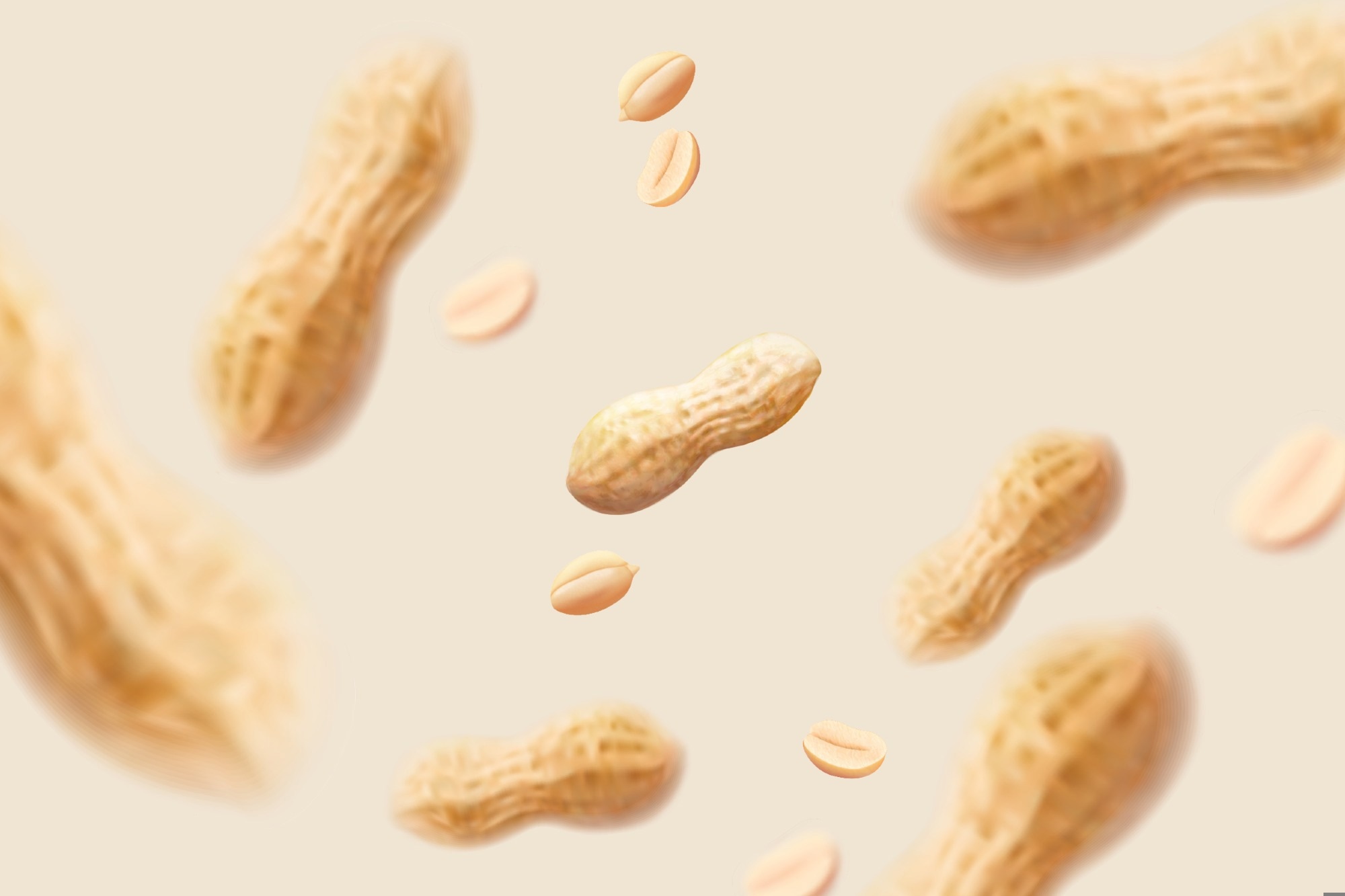Spanish scientists reveal that snacking on whole peanuts, not peanut butter, could help protect your cells’ youth, opening new doors to harnessing everyday foods for healthier aging.
 Study: Unveiling the Impact of Peanut Consumption on Telomere Length in Young and Healthy Individuals: Insights from the ARISTOTLE Study: A Randomized Clinical Trial. Image Credit: Rolling Stones / Shutterstock
Study: Unveiling the Impact of Peanut Consumption on Telomere Length in Young and Healthy Individuals: Insights from the ARISTOTLE Study: A Randomized Clinical Trial. Image Credit: Rolling Stones / Shutterstock
Did you know that telomeres, the protective caps at the ends of our chromosomes, shorten as we age, potentially accelerating aging and disease? In a recent study published in the journal Antioxidants, a research team in Spain explored whether consuming peanuts, which are rich in antioxidants, can influence telomere length in young, healthy individuals, to further our understanding of the potential role of diet in slowing down cellular aging.
Telomere Protection with Antioxidants
Telomeres are protective structures at the ends of chromosomes that shorten every time a cell divides. Their length is considered a marker of biological aging. Accelerated telomere shortening is linked to an increased risk of age-related diseases, including cardiovascular conditions, type 2 diabetes, and certain cancers. Furthermore, factors such as oxidative stress and chronic inflammation play a significant role in this shortening process. Consequently, diets rich in antioxidants may help reduce the rate of telomere attrition.
Peanuts are a common dietary source of several antioxidant compounds, including vitamin E, niacin, and polyphenols like resveratrol. These compounds may neutralize reactive oxygen species (ROS) and reduce inflammation, potentially preserving telomere length. While some observational studies suggest an association between higher nut intake and longer telomeres, evidence from clinical trials remains limited and inconsistent.
About the Study
The present randomized, controlled, parallel-design clinical trial was conducted over 6 months to investigate whether daily peanut consumption could impact telomere length in saliva samples of healthy young adults. A total of 63 participants were initially recruited, but 5 were excluded due to incomplete data, leaving 58 participants aged 18–33 years for analysis. Participants were randomly assigned to one of three groups: 25 g/day of skin-roasted peanuts (SRP), 32 g/day of peanut butter (PB), or 32 g/day of a control butter made from peanut oil (CB), which lacked phenolic compounds and fiber.
Before the intervention, baseline measurements were recorded, including anthropometrics, blood pressure, diet, physical activity, and fasting saliva samples. Dietary intake was tracked using a validated 151-item food frequency questionnaire at baseline and after 6 months. Physical activity was assessed via the Minnesota Leisure-Time Physical Activity Questionnaire, not accelerometers.
Telomere length was measured using quantitative PCR (qPCR) on saliva-derived DNA, expressed as a telomere-to-single-copy gene (T/S) ratio. To assess compliance, researchers analyzed self-reported dietary records and urinary biomarkers linked to peanut intake, such as resveratrol metabolites and coumaric acids. Participants were instructed to avoid other nuts, grapes, dark chocolate, and wine during the trial.
Major Findings
The study found that after 6 months, the group consuming skin-roasted peanuts (SRP) showed a modest but statistically significant increase in telomere length compared to the control group (mean difference: 0.53; 95% CI: 0.01, 1.05). In contrast, peanut butter (PB) consumption did not produce significant changes relative to the control.
Notably, 0% of SRP consumers experienced accelerated telomere shortening (defined as a reduction in length below the 20th percentile), compared to 22% in the PB group and 38% in controls. The authors proposed that whole peanuts, unlike processed peanut butter, may promote gut microbiota-derived short-chain fatty acids (SCFAs), which were previously linked to lower cortisol and depression biomarkers in the same trial.
Both SRP and PB contained added salt, but the researchers noted that unsalted peanuts might be preferable for older populations due to cardiovascular risks.
Limitations
A key limitation was the relatively small sample size (58 participants) and lack of a peanut-free control group, as the CB contained peanut oil. While the SRP group showed higher baseline HDL cholesterol levels (1.73 mmol/L vs. 1.53 mmol/L in controls), this imbalance was not fully addressed in the analysis, potentially confounding results. While the 6-month intervention provided insights, telomere attrition is a slow process, and longer-term studies are needed to confirm effects.
Conclusions
The study suggests that daily consumption of skin-roasted peanuts for 6 months may slow telomere shortening in young, healthy adults, likely due to their high monounsaturated fat (MUFA) content and bioactive compounds like m-coumaric acid. Peanut butter did not show similar benefits, possibly due to processing-related changes in fiber structure or nutrient bioavailability.
"These findings highlight the importance of whole foods over processed alternatives in promoting cellular health," the authors noted. They emphasized the need for longer trials in diverse populations, particularly older adults, to validate these results.
Journal reference:
- Torres-Oteros, D., Parilli-Moser, I., Laveriano Santos, E. P., Becerra-Tomás, N., Sanz-Lamora, H., Hurtado-Barroso, S., Haro, D., Marrero, P. F., Lamuela-Raventos, R. M., Relat, J., & Canudas, S. (2025). Unveiling the Impact of Peanut Consumption on Telomere Length in Young and Healthy Individuals: Insights from the ARISTOTLE Study: A Randomized Clinical Trial. Antioxidants, 14(4), 467. DOI:10.3390/antiox14040467, https://www.mdpi.com/2076-3921/14/4/467